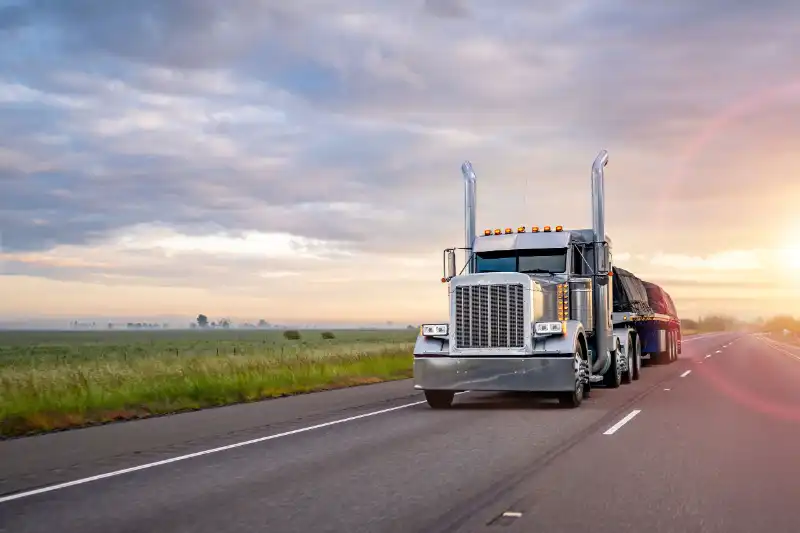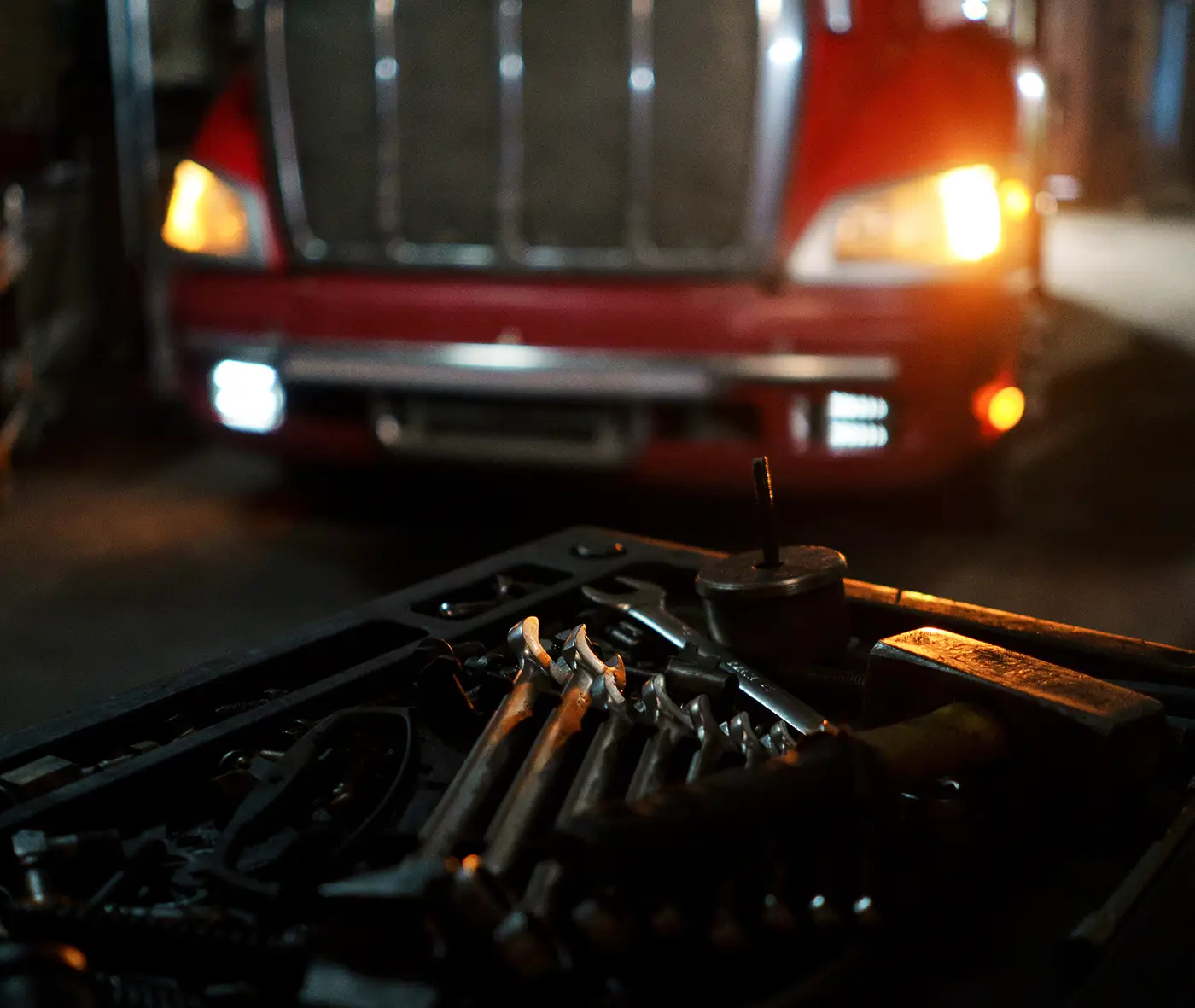.jpeg)
5 Signs Your Semi-Trailer Needs Immediate Attention
Learn the top 5 warning signs that your semi-trailer may need immediate attention, from brake issues to tire wear. Don’t let small problems become big headaches.

Keeping your semi-trailer in peak condition isn’t just about compliance—it’s essential for safety and operational efficiency. Ignoring minor issues can lead to major problems like breakdowns, delayed deliveries, or even accidents. Whether hauling freight across Illinois or running regional routes, recognizing the early signs of trouble can save you from costly downtime. Below are five tell-tale signs that your semi-trailer needs immediate maintenance to keep your rig rolling smoothly.
1. Unusual Tire Wear or Damage
Tires are your first point of contact with the road, and when they show signs of trouble, it’s a red flag. Irregular tread wear—such as bald spots or scalloping—often points to axle misalignment or improper load distribution. Other signs, like sidewall cracks or bulges, can indicate that the tire is nearing failure. Running your trailer on underinflated or worn-out tires greatly increases the risk of blowouts, especially at highway speeds.
A few common causes include misaligned axles, uneven weight distribution, and low tire pressure. You can inspect these by looking at tire tread depth, sidewall condition, and tire inflation. It’s great maintenance to rotate your tires regularly and inspect the axle alignment if you notice uneven wear. Keeping your tires properly inflated also prevents unnecessary wear and improves fuel efficiency.
2. Brake System Issues
If your brakes feel sluggish, squeal when applied, or take longer than usual to stop the vehicle, you can’t ignore these signs. These issues could indicate worn brake drums, a failing S-cam, or slack adjusters that need recalibration. A trailer with compromised brakes endangers everyone on the road—not to mention it puts you at risk of costly DOT violations. You should conduct brake checks during every pre-trip inspection and listen for air leaks from the air brake lines. If you catch signs of wear early, you’ll avoid major issues like brake fade or failure on the road.
Some signs of brake issues include:
- Squealing
- Grinding noises
- Air leaks
- Poor braking response
- Worn brake shoes
- Misaligned slack adjuster
- Damaged brake lines
3. Electrical Malfunctions and Light Failures
Flickering lights, non-functional taillights, or failing turn signals might seem like minor annoyances, but they’re more serious than they appear. Electrical problems are often caused by corroded wires, frayed harnesses, or water intrusion. In addition to posing safety risks, malfunctioning lights can result in fines for non-compliance with DOT regulations. Common causes of electrical failure of semi-trailers include broken connectors, frayed wires, and dead batteries.
Make it a habit to visually inspect your trailer’s lights before every trip. Replace corroded connectors and damaged wires immediately. Waterproof connectors or grease-coated harnesses will help protect your wiring from corrosion. To keep your trailer’s turn signal, running lights, or taillights running, get in contact with a professional mechanic when you notice symptoms of electrical malfunctions.
4. Suspension Problems
Your trailer’s suspension does more than provide a smooth ride—it ensures load stability and even weight distribution. If your trailer leans to one side or bounces excessively over rough terrain, your leaf springs or airbags might be compromised. A faulty suspension increases tire wear and can cause load shifts, which are dangerous during turns or sudden stops. Possible culprits of suspension problems include broken leaf springs, deflated airbags, and misaligned axles. Regularly inspect your suspension components for cracks or leaks, especially around airbags and leaf springs. If you fix small issues promptly to prevent more expensive repairs down the road.
5. Leaks in the Trailer’s Structure or Seals
Water damage can creep up on you if small leaks go unnoticed. Puddles inside the trailer or moisture around the seals and panel joints are early warning signs. Not only can leaks ruin your cargo, but they also encourage rust and cause structural decay over time. This is especially concerning in areas with fluctuating weather conditions, such as Colona, where moisture exposure can be high.
Common areas of concern include your semi-trailer’s door seals, roof panels, and window gaskets. You should look for puddles, rust stains, and worn-out weatherstripping. So inspect the weatherstripping during routine maintenance and replace any deteriorating seals. Catching leaks early will prevent rust from spreading and ensure your trailer stays roadworthy.
Why Regular Maintenance Matters
Your semi-trailer takes on a heavy workload, and even small problems can escalate into costly repairs if left unchecked. Preventive maintenance is a proactive approach—such as routine tire checks, suspension inspections, and electrical system maintenance—that helps ensure your trailer remains safe and compliant with industry standards. Staying on top of these five warning signs will keep your trailer in good working condition and reduce the chances of unexpected breakdowns.
Conclusion
With B&B Truck & Trailer Repair, we service semi-trailers from tire wear to brake issues. Every component of your semi-trailer plays a critical role in keeping your cargo moving safely and efficiently. The earlier you catch these warning signs, the easier and cheaper the repairs will be. A well-maintained trailer not only keeps you on schedule but also prevents fines, accidents, and downtime. So, keep an eye out for these signs, and you’ll stay ahead of any potential problems before they become bigger headaches. Check out our article on fleet maintenance if you want to learn more about heavy-duty trucks.
More Articles

Why Is Regular Fleet Maintenance Crucial for Business Success?

5 Mistakes to Avoid When Choosing a Repair Shop

Maximize Your Fleet Uptime with Proactive Maintenance!
Contact Us
Visit our full-service truck & trailer repair shop in Colona, Illinois, or take advantage of our mobile services offered throughout the Quad Cities area, including Moline & Rock Island, IL & Davenport & Bettendorf, IA. Give us a call, drop by the shop, or fill out our service request form!


